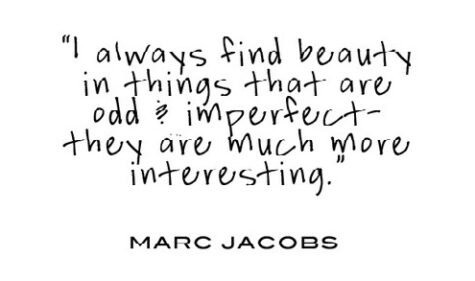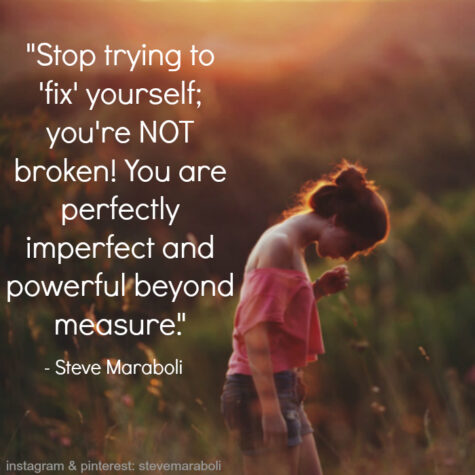Self Esteem
Something Kind

What is the kindest thing… the sweetest, most comforting, loving, thing you can do or say to yourself? Not coming up with anything?
Remember the love language quiz we explored? What’s your love language and how can you use it on yourself? Better yet, just go down the list and do each one!
- Use your words… say something really loving and kind to yourself.
- Take some time… spend a little time with you, doing what you love to do.
- Give and Receive… give yourself a present, something nice that you would really like.
- Good Deeds... do something nice just for yourself, just for you.
- Physical Touch… give yourself a hug, an actual pat on the back.
- Be There… make a pact to always be there for you.
- Radical Acceptance… radically accept that you are who you are and that’s ok.
Well? What are you waiting for? This is going to be fun!
Missing Mom

Sometimes I miss my mom. This is an especially familiar feeling for me because when I was 5 years old, my parents sent me away to boarding school. As a result, I had to learn how to be my own mom at a very young age. Somebody had to nurture and protect me or I wasn’t going to survive the experience.
No matter what your life experience was or is, we all want and need to be nurtured and protected. Part of Radical Self Care is taking an active part in that role of nurturer and protector. For some of us there’s a learning curve because we didn’t experience this early in life and we aren’t sure how to do it. For some of us, self care is riddled with guilt and fear because we were taught to never ever do it.
Right here, right now, this very moment, let’s invoke our inner moms. Who is she? What does she look like? Where has she been hiding out? Do we need to resurrect her from the ashes of our childhoods? Do we need to create her from the inner core of who we really are? Does she need a reboot? A makeover? Maybe even an extreme makeover?
Remember, your inner mom and your actual mom are NOT one and the same. Take some time today to think about this. Maybe write a small paragraph about her, have a conversation….

My inner mom and my outer mom are in total agreement right now. It’s time to get offline and do the dishes. I’d really love to hear your thoughts and ideas!
Oh, Hi Mom!

All this talk about my inner child got me thinking about my actual mom, and how much influence she still has over my inner child self.
True story: I have a picture of my mom in a nice little frame. And everywhere I put it, it seemed like she was judging me and finding me less than. But I didn’t want to store it away in a box because that seemed … I dunno… unkind. She really did love me a lot. She just didn’t understand me at all.
So my solution was to put her in my kitchen cabinet, next to the plates and cups. Every time I open the door, I see her, and I say, “I’m really sorry.” and then I grab what I need and shut the door.
What kind of a mom did you grow up with? Are the words she used on you still reverberating? Do you have to listen to them? Can you just put them away? In a box somewhere? In an album? In the fireplace?
And when you hear your mom taking to you in ways that are judgmental, hurtful, or unkind, maybe you could roll your eyes, pull out your inner teenager, and just blow her off. Or, if she is long gone from your life maybe you could simply acknowledge her and move on with an, “Oh, Hi mom. Gotta go now.” Or something similar.
Easier said than done, I know. Especially if she is still alive and fully present and actively engaged in your life. But maybe you can find a way to just say no to the nonsense and yes to the love?
And if you had a loving mom who was always there for you, lucky you! Listen to what she has to say, send her flowers if she’s still with you. If she’s gone from the world, send yourself the flowers because she continues to live on through you.
What do you think? Can we do it? Thoughts? Ideas? Revelations?
Use Your Words

Words matter. Self talk matters. Today I want to suggest that we make a simple but radical change in the ways we talk to and/or about ourselves. It’s important to speak your truth, I agree with that. And sometimes the truth about me isn’t very flattering but that doesn’t mean that I have to talk down to myself.
This morning I accidentally knocked over a small container with rice in it. Dry rice, not cooked, and it made a decent size mess. What was the first thing I said? “So Stupid!” And I was absolutely referring to myself. How could this be tweaked and changed?
I came up with the idea that every time I caught myself saying mean things to Shirley, I could use an add on phrase to take the sting out, while still staying with my truth. So, if I do something stupid, and I hear myself say “So stupid…” I could add one or more of the following:
- That was stupid … and it’s ok.
- I’m stupid … but not all the time.
- So stupid … and I don’t care because it really doesn’t matter.
Will this work for other negative self talk? Let’s see…
- My life sucks … but not all the time.
- I’m an idiot … and it’s ok because I am certainly not alone.
- I’m a complete mess … and I don’t care because I am also loveable and cute.
So, that works… what else is there to test out? What about “I can’t”… telling yourself that you can’t do something that you want to do can be very deflating and defeating.
- I can’t go on vacation … right this minute.
- I can’t fix my toilet … but that’s ok because I can find someone who can.
- I can’t get my act together … and I don’t care because I’m loveable and cute and it really doesn’t matter.
- I can’t get my house in order … right now, and I will try again later when I have more energy… enthusiasm… etc…
So what about your self talk? What does it sound like. Can you come up with more useful phrases to use if you find yourself talk is rude, demeaning, or just plain mean?
Note: I’ve been doing this all day, and it really does make a difference. I feel less defeated and more energetic. Try it! You might like it!
Need A Lift?

This was shared on Facebook, and I thought these great tips for overcoming depression would be really helpful as we work on navigating how to practice Radical Self Care.
- Shower.
Not a bath, a shower. Use water as hot or cold as you like. You don’t even need to wash. Just get in under the water and let it run over you for a while.
- Moisturize everything.
Use whatever lotion you like. Unscented? Dollar store lotion? Fancy 48 hour lotion that makes you smell like a field of wildflowers? Use whatever you want, and use it all over your entire dermis.
- Wear clean, comfortable clothes.
It really makes a difference. Comfortable and clean are the key words here. Doesn’t matter if it’s jeans or pajamas. It can even be a combination of the two.
- Put on your favorite underwear.
Cute black lacy panties? Those ridiculous boxers you bought last Christmas with candy cane hearts on the butt? Put them on.
- Drink cold water.
Use ice. If you want, add some mint or lemon for an extra boost. I always use lemon.
- Clean something.
Doesn’t have to be anything big. Organize one drawer of a desk. Wash five dirty dishes. Do a load of laundry. Scrub the bathroom sink.
- Blast music.
Listen to something upbeat and dancey and loud, something that’s got lots of energy. Sing to it, dance to it, even if you suck at both.
- Make Food
Don’t just grab a granola bar to munch. Take the time and make food. Even if it’s ramen. Add something special to it, like a soft boiled egg or some veggies. Prepare food, it tastes way better, and you’ll feel like you accomplished something.
- Make something.
Write a short story or a poem, draw a picture, color a picture, fold origami, crochet or knit, sculpt something out of clay, anything artistic. Even if you don’t think you’re good at it. Create.
- Go outside.
Take a walk. Sit in the grass. Look at the clouds. Smell flowers. Put your hands in the dirt and feel the soil against your skin.
- Call someone.
Call a loved one, a friend, a family member, call a chat service if you have no one else to call. Talk to a stranger on the street. Have a conversation and listen to someone’s voice. If you can’t bring yourself to call, text or email or whatever, just have some social interaction with another person. Even if you don’t say much, listen to them. It helps.
- Cuddle your pets
If you have them (and if you can) cuddle them. Take pictures of them. Talk to them. Tell them how you feel, about your favorite movie, a new game coming out, anything.
Notes:
- It may seem small or silly to some, but this list keeps people alive.
- At your absolute best you won’t be good enough for the wrong people. But at your worst, you’ll still be worth it to the right ones. Remember that. Keep holding on.
- In case nobody has told you today I love you and you are worth your weight and then some in gold, so be kind to yourself and most of all keep pushing on!!!!
- Find something to be grateful for!
Best Boss Ever

Now that we’ve established that we are our own actual bosses, I think it would be a great idea to think about ways to achieve the Best Boss Ever status. Taking control of your life can seem a daunting task but it is not impossible to do. With the right mindset and a little bit of courage, I think we really can do it!
With that in mind, I did an internet search and found a bunch of good tips from a variety of sources. Here they are:
- Set targets and track progress.
Few things are more frustrating than feeling like you’ve given your all, only to be told that you didn’t deliver what was expected. Everyone wants to feel a sense of accomplishment. So, it’s important to set clear expectations.
For example, if the CEO of you wants you to exercise every day, be clear about what that means. Does it mean 10 sit ups? A walk around the block? What does “more exercise” specifically mean? In the world of your reality, what does eat healthy actually look like? Be precise and clear, and keep track of progress made.
So before you assign new projects or tasks, be sure to set clear expectations, and follow up with detailed instructions, if necessary. Then, schedule regular check-ins so that your expectations are on the same page as your reality!
- Allow yourself to stumble.
Don’t confuse being the best boss with having “employees” that are the best at everything. Similarly, setting expectations doesn’t mean micromanaging the process of the work. Let yourself know what you want, and let yourself deliver it—even if you think you could have done a better job.
Sometimes growing also means allowing yourself to stumble. If you make mistakes—learn from them. “You can’t expect perfection, but you do want growth. Failures are okay. If you fail a lot, maybe it’s time to rethink your strategy.”
- Develop your talent.
As the head of the company of you, find out what interests you the most. Take courses to improve your skill set, and then challenge yourself with work that is interesting, and maybe just a little bit above your pay grade. If it’s something that is interesting or useful, it will be easier to make this happen.
- Find out what motivates your “workers.”
You’ll be a more effective boss if you adapt to your employees, rather than expecting your employees to adapt to you. (If they’re good employees, they’ll be trying to do the same thing.)
Some aspects of your personality might crave autonomy. Others may respond well to regular feedback. Some will want to have a very formal relationship with you, while others work better when they feel like they’re your peer rather than in a hierarchical relationship.
- Give good feedback.
If something isn’t working, admit to yourself that it isn’t working, and think about ways you can improve. Be generous with praise. We so often forget to praise ourselves for jobs well done.
In the workplace nothing makes employees feel better than having their hard work acknowledged, especially in the day-to-day, while they’re grinding it out. They’ll be happy to keep hitting tough deadlines and burning the midnight oil if they know their efforts are appreciated. The same holds true for hard work on yourself.
Remember that you’re all in it together. Literally!! Just because you’re the boss, it doesn’t mean you have to be cruel or overbearing. Good bosses are team leaders, not dictators. Try to bring that spirit of inclusion and shared effort, and you will want to be part of your team—earning more wins for the boss they’re proud to support.
- Stay connected and aware.
It might be good to have a “group” meeting once a week. Talk or journal to yourself about how things are going, what’s going well, and what might need a new protocol or a different approach. Listen to your heart, your gut, your feelings, and your intuition. Stay on track but stay flexible at the same time.
- Let the bad stuff go.
A great boss does what is necessary to maintain a non toxic environment. In the actual workplace a good manager takes steps to replace faulty tools, makes sure there are adequate supplies for the work that is being done, and steps in to eliminate problem clients and customers.
If you are going to be your own great boss or good manager, you will need to do the same. Provide yourself with the tools and supplies you need. Do something about the problem people and the toxic relationships that drain your energy.
- Show up.
Writing down your goals and dreaming is not enough. Even if you talk up a storm, nothing is going to happen if you don’t SHOW UP. This is challenging, especially in the beginning, when you might be feeling some self-doubt. But when you decide to show up and actually face whatever it is that you need to face, you will find yourself empowered and energized.
- Monitor your use of media.
Media has a way bigger power on us than we think. Pay attention to how much time you spend on social media, The president of the small country that is you wants you to spend your time engaging in activities that make your life healthy and bring you fulfillment.
Encourage your “civilians” to spend time with friends, and family. Invest in creative outlets, good books, and mini vacations to interesting places.
- Don’t push too hard.
It is not healthy for your body or your mind to always be on work mode. It is important to create healthy boundaries that will allow you to say no when you need to so you won’t get stretched too thin. Give yourself days off for fun and play. Allow yourself some down time and room for simply sitting and doing nothing.
- Encourage regular self care.
Self-care is more than just resting, although sleep is an important part of it. Self-care is prioritizing your physical, mental, emotional and spiritual needs. This is different for everyone because people have different needs. It is essential to do some reflection, so you can figure out what self-care routines will benefit for you.
Aromatherapy, massages, meditation, exercise and skincare are just some of the activities that can help boost your mood. The point is to prioritize yourself and do things that you enjoy. They don’t have to be major, even simple activities are great as long as they are meaningful to you.
- Be patient.
So, you have plotted out your course and are working hard to achieve your goals but you are still not getting there. Don’t rush it! Genuine growth can take a long time. Very few people become successful overnight. You have to be patient and trust your own journey. You will get there when you need to.
- Be willing to delegate.
Being an effective leader requires being willing to step back and allow others to take on responsibilities. It’s your responsibility as the manager to delegate projects that set your “employees” up for success and make adjustments where needed when expectations are not being met.
Do you need to hire a professional? Maybe you could invite some help from family or friends. You do not have to do everything all by yourself. And it’s not fair to expect that. Companies and corporations hire from outside sources all the time. If money is an issue, family and friends can be a valuable resource.
- Maintain communication.
It’s important to maintain regular and prompt communication with your “employees,” in addition to making time for regular “employee” reviews and check-ins. Remember, communication is a two-way street. A good leader also makes sure that their “employees” always have the opportunity to communicate any concerns or questions they have.
Remember that when we say “employee” we are actually referring to various aspects of ourselves. For example my employees are comprised of a blogger, an artist, a mother, a cook, a receptionist, a housekeeper, a gardener… etc. I have a lot of “employees”… LOL… you might just have one or two.
- Listen to others but make the final decision.
One of the most challenging skills to master as a great leader is finding the balance between listening to others and being authoritative. The best approach to decision-making is to be receptive and open to feedback during deliberation and to be resolute and direct once you have made a choice. Clear and final guidance from the top makes work easier for everyone as it avoids uncertainty and mixed messages.
Sources:
Setting Boundaries

Setting boundaries is pretty important I think, and I’m not talking about the kind of boundaries depicted in the picture. Isolating yourself and ignoring everything except for what you are enjoying in the moment isn’t always a good idea.
Healthy boundaries is a phrase you see a lot on websites and in books but I’m not sure what that really means in real life. My personal experience with boundaries pretty much looks like that picture at the top of the page. There are some people, close friends and family who have the key to that gate. They also have my phone number. I’m pretty sure I’d drop everything for them if they needed me.
Because I felt somewhat clueless on this subject, I asked Google to find me something about healthy boundaries. This little tidbit at Better Up seemed good.

Our personal boundaries should always be heard and never excluded from any relationship. To give you an idea of what personal boundaries can look like, here are five examples:
- Ownership and agency over your financial assets.
- The ability to stay true to your sense of self, spiritual beliefs, and passions.
- Ability to prioritize personal time for self-care.
- The right to change your mind and preferences.
- Alone time with no distractions or interruptions.
And I am thinking that it might be really interesting to think about what you would like your personal boundaries to be. What might they look like? Have you set good boundaries? What boundaries are being crossed? How does that happen? And are you respecting your self when it comes to these boundaries?
- For example:
I do pretty good with numbers 1, 2, and 4. I really suck at prioritizing personal time for self-care. I have a lot of personal time and alone time, but I almost never use it for self-care.
As for number 5, that one is tricky. I do have a fair amount of time with no distractions or interruptions, but if my family calls, I answer the phone. Every time. Which I think is ok because if I really do need a “no interruption” time out, I can give everyone a heads up and they respect that.
HOWEVER! I find that I do not give my self hardly any alone time with no distractions … most of my alone time is spent on distractions… So… that’s something to work on.
So now what?
Let’s put some thought into our personal boundaries… figuring out what they actually are… deciding what we want them to be. Write a list. Maybe do a little research. Ask our really good friends what they think…. Let’s do something about our boundaries. Something easy. Something small. They are your boundaries. They can be whatever you want them to be!

Be Good To Yourself Therapy
I found a cute little book in my personal library. It’s called Be Good To Yourself Therapy. It is a very simple short little book that details 37 rules for coping from day to day. There is some really good stuff here. Enjoy!
- 1. Trust yourself. You know what you want and need.
- 2. Put yourself first. You can’t be anything for anybody else unless you take care of yourself.
- 3. Let your feelings be known. They are important.
- 4. Express your opinions. It’s good to hear yourself talk.
- 5. Value your thinking. You do it well.
- 6. Take the time and space you need – even if other people are wanting something from you.
- 7. When you need something, don’t talk yourself out of it. Even if you can’t have it, it’s OK to need.
- 8. When you’re scared, let someone know. Isolating yourself when you’re scared makes it worse.
- 9. When you feel like running away, let yourself feel the scare. Think about what you fear will happen and decide what you need to do.
- 10. When you’re angry, let yourself feel the anger. Decide what you want to do; just feel it, express it, or take some action.
- 11. When you’re sad, think about what would be comforting.
- 12. When you’re hurt, tell the person who hurt you. Keeping it inside makes it grow.
- 13. When you see someone else’s hurt face, breathe. You are not responsible for making other people happy.
- 14. When you have work to do and you don’t want to do it, decide what really needs to be done and what can wait.
- 15. When you want something from someone else, ask. You’ll be OK if they say no. Asking is being true to yourself.
- 16. When you need help, ask. Trust people to say no if they don’t want to give.
- 17. When people turn you down, it usually has to do with them and not with you. Ask someone else for what you need.
- 18. When you feel alone, know there are people who want to be with you. Fantasize what it would be like to be with each of them. Decide if you want to make that happen.
- 19. When you feel anxious, let yourself know that in your head you’ve moved into the future to something scary and your body has gotten up the energy for it. Come back to the present.
- 20. When you want to say something loving to someone, go ahead. Expressing your feelings is not a commitment.
- 21. When someone yells at you, physically support yourself by relaxing into your chair or putting your feet firmly on the floor. Remember to breathe. Think about the message they are trying to get across to you.
- 22. When you’re harassing yourself, stop. You do it when you need something. Figure out what you need and get it.
- 23. When everything seems wrong, you are overwhelmed and need some comforting. Ask for it. Afterwards, you can think about what you need to do.
- 24. When you want to talk to someone new and are scared, breathe. Don’t start rehearsing, just plunge in. If it doesn’t go well, you can stop.
- 25. If you’re doing something you don’t like to do (such as smoking or overeating), stop. Think about what you really want. If you’re stuck and can’t think clearly, talk out loud to someone.
- 26. When you can’t think straight, stop thinking. Feel.
- 27. When you’re in need of love, reach out. There are people who love you.
- 28. When you’re confused, it’s usually because you think you should do one thing and you want to do another. Dialogue with yourself out loud or on paper, or present both sides to a friend.
- 29. When you feel harried, slow down. Deliberately slow your breathing, your speech, and your movements.
- 30. When you have tears, cry.
- 31. When you feel like crying and it’s not a safe place to cry, acknowledge your pain and promise yourself a good cry later. Keep your promise.
- 32. When somebody does you wrong, be actively angry with them.
- 33. When everything seems gray, look for color.
- 34. When you feel like a baby, take care of the baby in you.
- 35. When somebody gives you a gift, say “thank you.” That’s all you need to do. A gift is not an obligation.
- 36. When somebody loves you, just accept and be glad. Love is not an obligation. You don’t have to do anything in return.
- 37. If one of these rules seems wrong for you, talk about it with someone. Then, rewrite it so it fits for you.
Source: Be Good To Yourself Therapy by Cherry Hartman
Just Be Flawsome
Shame
It occurred to me that no conversation about imperfection and failure is complete until we address that one thing that most of us will go to great lengths to avoid. Shame.
Here are some thoughts about shame by Brené Brown that can be found in her book: The Gifts of Imperfection: Let Go of Who You Think You’re Supposed to Be and Embrace Who You Are.
What is shame?
Shame is that warm feeling that washes over us, making us feel small, flawed, and never good enough.
Here are the first three things that you need to know about shame:
- We all have it. Shame is universal and one of the most primitive human emotions that we experience. The only people who don’t experience shame lack the capacity for empathy and human connection.
- We’re all afraid to talk about shame.
- The less we talk about shame, the more control it has over our lives.”
People often want to believe that shame is reserved for the folks who have survived terrible traumas, but this is not true. Shame is something we all experience. And while it feels as if shame hides in our darkest corners, it actually tends to lurk in all of the familiar places, including appearance and body image, family, parenting, money and work, health, addiction, sex, aging, and religion. To feel shame is to be human.
We’re all capable of developing shame resilience. Shame resilience is the ability to recognize shame, to move through it constructively while maintaining worthiness and authenticity, and to ultimately develop more courage, compassion, and connection as a result of our experience. The first thing we need to understand about shame resilience is that the less we talk about shame, the more we have it.
Shame needs three things to grow out of control in our lives: secrecy, silence, and judgment. When something shaming happens and we keep it locked up, it festers and grows. It consumes us. We need to share our experience. Shame happens between people, and it heals between people. If we can find someone who has earned the right to hear our story, we need to tell it. Shame loses power when it is spoken.
She goes on to say:
After a decade of research, I found that men and women with high levels of shame resilience share
these four elements:
- They understand shame and recognize what messages and expectations trigger shame for them.
- They practice critical awareness by reality-checking the messages and expectations that tell us that being imperfect means being inadequate.
- They reach out and share their stories with people they trust.
- They speak shame—they use the word shame, they talk about how they’re feeling, and they ask for what they need.’
When we experience shame, we feel disconnected and desperate for worthiness. Full of shame or the fear of shame, we are more likely to engage in self-destructive behaviors and to attack or shame others. In fact, shame is related to violence, aggression, depression, addiction, eating disorders, and bullying.”
Here’s what she has to say about guilt and shame, and the differences between them:
Guilt = I did something bad.
Shame = I am bad.
Guilt is just as powerful as shame, but its effect is often positive while shame often is destructive. When we see people apologize, make amends, or replace negative behaviors with more positive ones, guilt is often the motivator, not shame. In fact, in my research, I found that shame corrodes the part of us that believes we can change and do better.
And then there’s this bit about perfectionism.
Where perfectionism exists, shame is always lurking. In fact, shame is the birthplace of perfectionism.
Shame is a daunting word. The problem is that when we don’t claim shame, it claims us. And one of the ways it sneaks into our lives is through perfectionism.
Perfectionism is not the same thing as striving to be your best. Perfectionism is not about healthy achievement and growth. Perfectionism is the belief that if we live perfect, look perfect, and act perfect, we can minimize or avoid the pain of blame, judgment, and shame. It’s a shield. Perfectionism is a twenty-ton shield that we lug around thinking it will protect us when, in fact, it’s the thing that’s really preventing us from taking flight.
Perfectionism is not self-improvement. Perfectionism is, at its core, about trying to earn approval and acceptance. Most perfectionists were raised being praised for achievement and performance (grades, manners, rule-following, people-pleasing, appearance, sports). Somewhere along the way, we adopt this dangerous and debilitating belief system: I am what I accomplish and how well I accomplish it. Please. Perform. Perfect. Healthy striving is self-focused—How can I improve? Perfectionism is other-focused—What will they think?
Research shows that perfectionism hampers success. In fact, it’s often the path to depression, anxiety, addiction, and life-paralysis.
Life-paralysis refers to all of the opportunities we miss because we’re too afraid to put anything out in the world that could be imperfect. It’s also all of the dreams that we don’t follow because of our deep fear of failing, making mistakes, and disappointing others. It’s terrifying to risk when you’re a perfectionist; your self-worth is on the line.’
Perfectionism is self-destructive simply because there is no such thing as perfect. Perfection is an unattainable goal. Additionally, perfectionism is more about perception—we want to be perceived as perfect. Again, this is unattainable—there is no way to control perception, regardless of how much time and energy we spend trying.
To overcome perfectionism, we need to be able to acknowledge our vulnerabilities to the universal experiences of shame, judgment, and blame; develop shame resilience; and practice self-compassion. When we become more loving and compassionate with ourselves and we begin to practice shame resilience, we can embrace our imperfections. It is in the process of embracing our imperfections that we find our truest gifts: courage, compassion, and connection.
- Radical Self Care Project Overview by shirleytwofeathers - No Comment
- Radical Self Care Image Gallery by shirleytwofeathers - No Comment
- It’s A Wrap by shirleytwofeathers - 3 Comments
- Something To Consider by shirleytwofeathers - 1 Comment
- Nurturing Your Precious Self by shirleytwofeathers - 3 Comments
me: Make Your Own Violet Fire
Abdulrahman: Money Chant – Very Fast
Shirley Twofeathers: It’s A Wrap
Daniel Knirs: It’s A Wrap
Shirley Twofeathers: It’s A Wrap

















